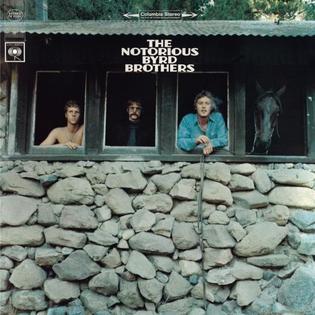Related Research Articles
Psychedelic rock is rock music that is inspired, influenced, or representative of psychedelic culture, which is centered on perception-altering hallucinogenic drugs. The music is intended to replicate and enhance the mind-altering experiences of psychedelic drugs, most notably LSD. Many psychedelic groups differ in style, and the label is often applied spuriously.
Rock music is a broad genre of popular music that originated as "rock and roll" in the United States in the late 1940s and early 1950s, developing into a range of different styles in the mid-1960s and later, particularly in the United States and the United Kingdom. It has its roots in 1940s and 1950s rock and roll, a style that drew directly from the blues and rhythm and blues genres of African-American music and from country music. Rock music also drew strongly from a number of other genres such as electric blues and folk, and incorporated influences from jazz, classical, and other musical styles. For instrumentation, rock has centered on the electric guitar, usually as part of a rock group with electric bass, drums, and one or more singers. Usually, rock is song-based music with a 4
4 time signature using a verse–chorus form, but the genre has become extremely diverse. Like pop music, lyrics often stress romantic love but also address a wide variety of other themes that are frequently social or political.

The Byrds were an American rock band formed in Los Angeles, California in 1964. The band underwent multiple lineup changes throughout its existence, with frontman Roger McGuinn remaining the sole consistent member. Although their time as one of the most popular groups in the world only lasted for a short period in the mid-1960s, the Byrds are today considered by critics to be among the most influential rock acts of their era. Their signature blend of clear harmony singing and McGuinn's jangly twelve-string Rickenbacker guitar was "absorbed into the vocabulary of rock" and has continued to be influential.

Easy listening is a popular music genre and radio format that was most popular during the 1950s to 1970s. It is related to middle-of-the-road (MOR) music and encompasses instrumental recordings of standards, hit songs, non-rock vocals and instrumental covers of selected popular rock songs. It mostly concentrates on music that pre-dates the rock and roll era, characteristically on music from the 1940s and 1950s. It was differentiated from the mostly instrumental beautiful music format by its variety of styles, including a percentage of vocals, arrangements and tempos to fit various parts of the broadcast day.
Folk rock is a hybrid music genre that combines the elements of folk and rock music, which arose in the United States, Canada, and the United Kingdom in the mid-1960s. In the U.S., folk rock emerged from the folk music revival and the influence that the Beatles and other British Invasion bands had on members of that movement. Performers such as Bob Dylan and the Byrds—several of whose members had earlier played in folk ensembles—attempted to blend the sounds of rock with their pre-existing folk repertoire, adopting the use of electric instrumentation and drums in a way previously discouraged in the U.S. folk community. The term "folk rock" was initially used in the U.S. music press in June 1965 to describe the Byrds' music.

The music of the United States reflects the country's pluri-ethnic population through a diverse array of styles. It is a mixture of music influenced by the music of the United Kingdom, West Africa, Ireland, Latin America, and mainland Europe, among other places. The country's most internationally renowned genres are jazz, blues, country, bluegrass, rock, rock and roll, R&B, pop, hip hop, soul, funk, gospel, disco, house, techno, ragtime, doo-wop, folk music, americana, boogaloo, tejano, reggaeton, surf, and salsa. American music is heard around the world. Since the beginning of the 20th century, some forms of American popular music have gained a near global audience.
Latin rock is a term to describe a subgenre blending traditional sounds and elements of Latin American and Hispanic Caribbean folk with rock music. However, it is widely used in the English-language media to refer any kind of rock music featuring Spanish or Portuguese vocals. This has led to controversy about the scope of the terminology.

Noble Lee Sissle was an American jazz composer, lyricist, bandleader, singer, and playwright, best known for the Broadway musical Shuffle Along (1921), and its hit song "I'm Just Wild About Harry".
Trigon may refer to:

Raga rock is rock or pop music with a pronounced Indian influence, either in its construction, its timbre, or its use of Indian musical instruments, such as the sitar and tabla. In addition, rock music from the 1960s and 1970s that incorporates South Asian musical influences and instruments, along with Western ideas of the Indian subcontinent, is often regarded as raga rock.

The Notorious Byrd Brothers is the fifth album by the American rock band the Byrds, and was released in January 1968, on Columbia Records. The album represents the pinnacle of the Byrds' late-‘60s musical experimentation, with the band blending together elements of psychedelia, folk rock, country, electronic music, baroque pop, and jazz. With producer Gary Usher, they made extensive use of a number of studio effects and production techniques, including phasing, flanging, and spatial panning. The Byrds also introduced the sound of the pedal steel guitar and the Moog modular synthesizer into their music, making it one of the first LP releases on which the Moog appears.
Popular music of the United Kingdom in the 1990s continued to develop and diversify. While the singles charts were dominated by boy bands and girl groups, British soul and Indian-based music also enjoyed their greatest level of mainstream success to date, and the rise of World music helped revitalise the popularity of folk music. Electronic rock bands like The Prodigy and Chemical Brothers began to achieve a high profile. Alternative rock reached the mainstream, emerging from the Madchester scene to produce dream pop, shoegazing, post rock and indie pop, which led to the commercial success of Britpop bands like Blur and Oasis; followed by a stream of post-Britpop bands like Radiohead and The Verve.
Psychedelic music is a wide range of popular music styles and genres influenced by 1960s psychedelia, a subculture of people who used psychedelic drugs such as LSD, psilocybin mushrooms, mescaline, DMT, and marijuana to experience visual and auditory hallucinations, synesthesia and altered states of consciousness. Psychedelic music may also aim to enhance the experience of using these drugs and has been found to have a significant influence on psychedelic therapy.
John James Chilton was a British jazz trumpeter and writer. During the 1960s, he also worked with pop bands, including The Swinging Blue Jeans and The Escorts.
Thomas Peter Bancroft is a British jazz drummer and composer.

Geta Burlacu is a Moldovan singer. She represented Moldova in the Eurovision Song Contest 2008 with the song "A Century of Love” written by Vica Demici and Oleg Baraliuc.
This is a timeline of music in the United States from 1950 to 1969.
This is a timeline of music in the United States from 1970 to the present.
This is a timeline of music in the United States from 1880 to 1919.
This is a timeline of music in the United States from 1920 to 1949.
References
- 1 2 3 Frieder Monzer; Timo Ulrichs (January 2016). Moldova: Mit Chișinău, ganz Bessarabien und Transdnestrien (in German). Trescher Verlag. p. 75. ISBN 978-3-89794-339-1.
- 1 2 John Shepherd (2005). Continuum encyclopedia of popular music of the world. Continuum. p. 57. ISBN 978-0-8264-7436-0.
- ↑ Global Rhythm. Vol. 11. World Marketing Incorporated. 2002. p. 63.